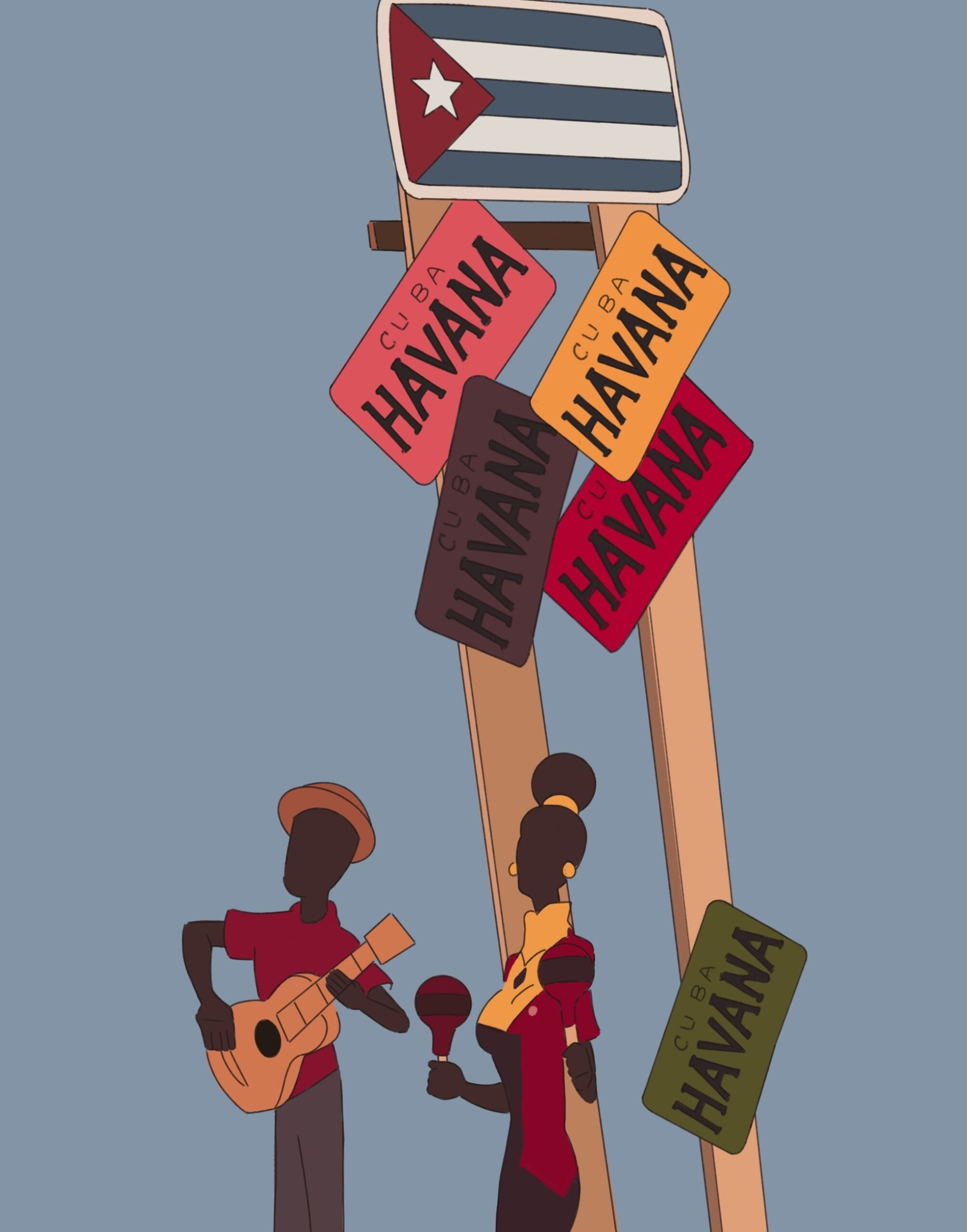At a recent concert, Jazz band Director Sarah Cline asked for parent support for the upcoming trip to Cuba. She recalled the contrast between the attitudes of host school Havana’s Escuela Nacional de Música (ENM), the National School of Arts, and Berkeley High School to woodwind reeds.
When she brought reeds to Cuba the director thanked her for giving their students the opportunity to each have a reed of their own. At BHS, splintered reeds scatter the floor of the jazz room and boxes of them sit unused on shelves.
Integral to the success of BHS’s Jazz program are its travels to Cuba. Every other year, seniors taking jazz and members of the prestigious jazz ensemble make a trip to Havana, Cuba to experience Latin music at its heart. Due to the disruption caused by the pandemic, only seniors were able to make last year’s trip, but this year, a compartment of 46 musicians along with 12 adults traveled to Havana, Cuba.
Their stay in Havana lasted from Friday, November 4 to Saturday, November 12, where they immersed themselves in the country’s music and went on field trips throughout the local environment.
The musicians worked directly with ENM. “We are working with master classes,” said Izzy Ely, a senior trombonist in the Two O'Clock jazz band. Students worked with others of their instrument in sectionals and then came together in big bands to play with musicians from la ENM.
“I enjoyed (the ENM students’) willingness to teach us; rather than judgment, they shared with us their knowledge, and I learned so much from them,” Fosket-Hydes said.
Outside of music, the musicians experienced Cuba as tourists and students. “We went out to clubs and restaurants where there was a band playing … we would dance and sit in with the bands,” said Fosket-Hydes. She had the opportunity to purchase innovative Cuban art at a market, to watch cigar production at a tobacco farm, and to learn about the ties of music to the history of Havana. “We had a speaker talk to us about the history of Cuba,” she said. “He had lived in Berkeley, then moved to Cuba to study at (ENM); it was very interesting to hear his perspective, as someone who grew up in a similar environment to us.”
ENM and BHS have an intimate connection from playing and working together, but their relationship goes further than music. “(We’re) providing donated instruments, … reeds, and other supplies,” Ely said. The longest running embargo in the world, placed on Cuba by the United States in 1958, remains in place, banning nearly all exports from the United States to Cuba. For the musicians, this means that the only way to get American instruments and supplies is through donations like the ones BHS Jazz and others provide. Many such issues are integrated into the Cuba trip based on the virtue of it being a developing country with a historically unsteady relationship with the US.
“We have to be careful not to lose any (of our possessions), because the Cubans can’t replace them,” said Solomon, discussing ENA students’ living conditions. “We have to use bottled water rather than tap water.”
Ely, before the trip, rushed to get his schoolwork done; not only did he miss a week of instruction but barring a $250 Wi-Fi card, there was no internet that the students could make use of. Relating to more on-the-ground concerns, in addition to the typical hassles of a field trip, administration has to deal with providing nearly 50 high schoolers with visas and passports as well as getting them through customs. The trip was no idle endeavor, and natural disasters didn't make it easier. Hurricane Nicole passed near the area where the bands were staying, close enough for Fosket-Hydes to see its “devastation,” but also the “willingness (of the Cuban people) to help each other rebuild.”For BHS Jazz, the Cuba trip exemplifies the values of the organization. It's about giving back to underrepresented communities, the foundations of American music, and finding your musical sense of expression through surrounding yourself with other brilliant creators. “I’m privileged to belong to a jazz program that is so distinguished in the jazz community,” said Merhawi Solomon, a tenor saxophonist in Berkeley High’s Jazz Ensemble. “As one of the best high school jazz bands, we produce many great musicians.” The trip to Havana has and continues to be formative in shaping the growing crop of BHS musicians.





